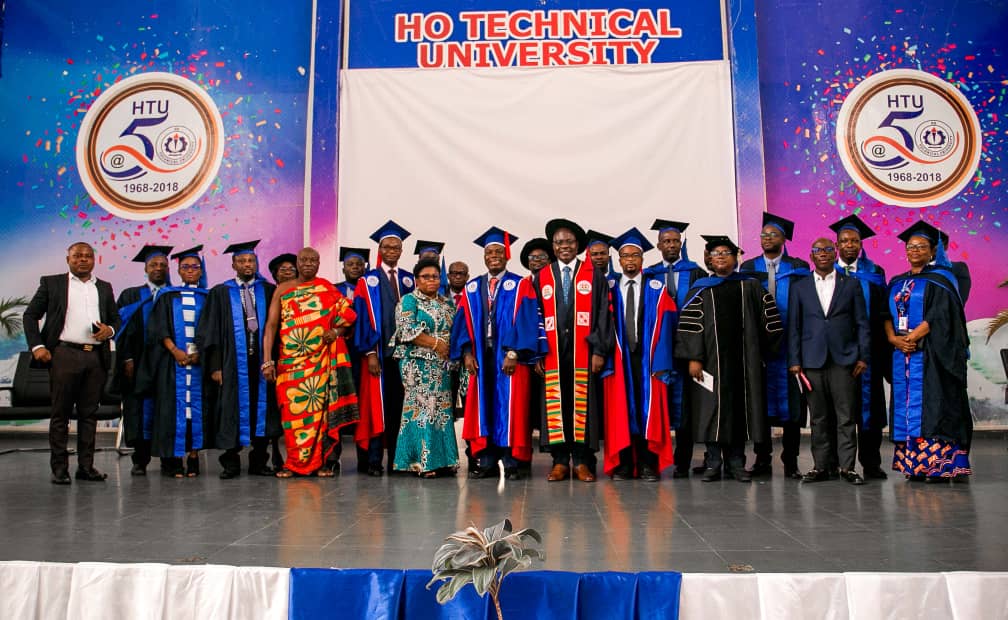Academic curricula must be reconsidered to suit the times – Prof Dodoo
 Prof Alex Dodoo, the Director General, Ghana Standards Authority (GSA), has called for a reconsideration of the academic curricula to suit the times as well as an effective work environment to utilise the potential of the youth.
Prof Alex Dodoo, the Director General, Ghana Standards Authority (GSA), has called for a reconsideration of the academic curricula to suit the times as well as an effective work environment to utilise the potential of the youth.
He said the youth would remain the workforce for the industrial revolution, and that plans to ensure their effective participation should be conducive to the delivery of their potential.
The Director General was delivering the Vice-Chancellor’s Distinguished Lecture Series of the Ho Technical University and said academic curricula and skill programming needed to be reconsidered to suit the times and position the youth to lead the industrial advancement.
The lecture was on the topic: “Using Technical Universities to accelerate job creation under the framework of the Ghana National Quality Policy and the Pan-African Quality Infrastructure.”
Prof Dodoo said an increasingly transforming youth generation required a workplace designed and developed to reflect their world, and therefore flexible working hours and remote working should be considered.
He, thus, called on technical universities, among other training institutions, to consider the hybridity in developing the right quality of human resources.
“The world of work, as we know it, is rapidly changing and technical universities have the best opportunities to shape the young for the current world of work,” Prof Dodoo said.
“To do this, there is the need to understand the youth and to shape curricula according to their needs and the needs of the world they will live in”.
Prof. Dodoo said the “current educational curriculum has not lived up to the rapidly changing world” as most graduates of the nation’s universities did not have the skills needed for the evolving world of work.
He noted that self-confidence, critical thinking, and goal setting among other life skills remained unavailable in most institutions, with a “huge skills gap” affecting graduate advancement.
Prof Dodoo, also the President of the African Organisation for Standardisation, and the Precision Quality Professor-In-Residence of the Design & Technology Institute, said the adoption of both infrastructure and policy heralded an era of quality goods and services on the African Continent.
He said the alignment of national and regional policies, progress with the continental free trade and integration, and the enhancement of Technical and Vocational Education Training (TVET), all provided the perfect timing for the desired industrial development.
That called for the TVET space to be enhanced to help provide the needed tools and technological knowhow for both formal and informal SMEs (Small and Medium Sized Enterprises), with a focus on ensuring quality, precision, consistency, and reliability, he said.
Industry must also take advantage of the precision quality movement being championed by the Ho, Takoradi and Kumasi Technical universities, together with the Design & Technology Institute for their mutual benefits.
Prof Dodoo said a reorganisation of the mindset of the people would be required to encourage spirited commitment towards hardwork and excellence.
“Graduates must take the jobs and make the most out of it. A harsh reality in Ghana for most employers and managers is the attitude of staff at all levels. The culture of “entitlement” is high,” he said.
“Discipline, hardwork, commitment and ownership appear missing. This creates huge problems for employers and makes self-created enterprises fail. A national mindset change is required to align our attitudes with our expectations.”
Professor Ben Honyenuga, the Vice Chancellor, Ho Technical University, said the Lecture, the fourth in a series, was established to enhance the academic experiences of faculty and students, and to provide insight and ideas for research.
He said the University was endowed with being the first to implement the Precision Quality Curriculum and would strive towards enhancing the quality and industry competitiveness of its graduates.
“This is where industry – academia collaborations such as the HTU-DTI partnership, which is aimed at improving the overall competitiveness of the Ghanaian industry by producing a new generation of competent, effective, and well-grounded graduates, including technicians, artists, and professionals, is a game changer.
Present at the lecture was a host of dignitaries including Professor Lydia Azato, Vice Chancellor of the University of Health and Allied Sciences.
Source: GNA
